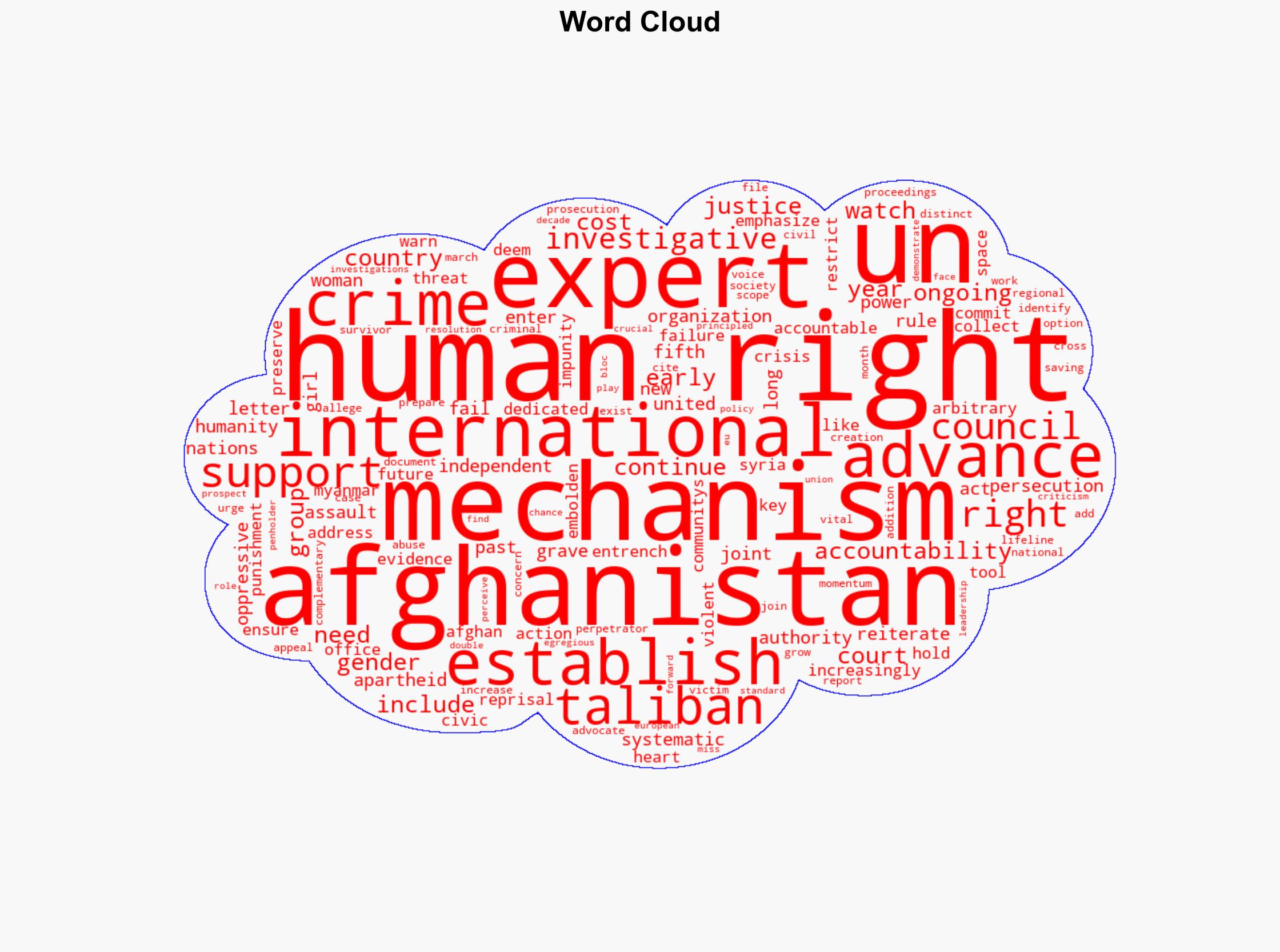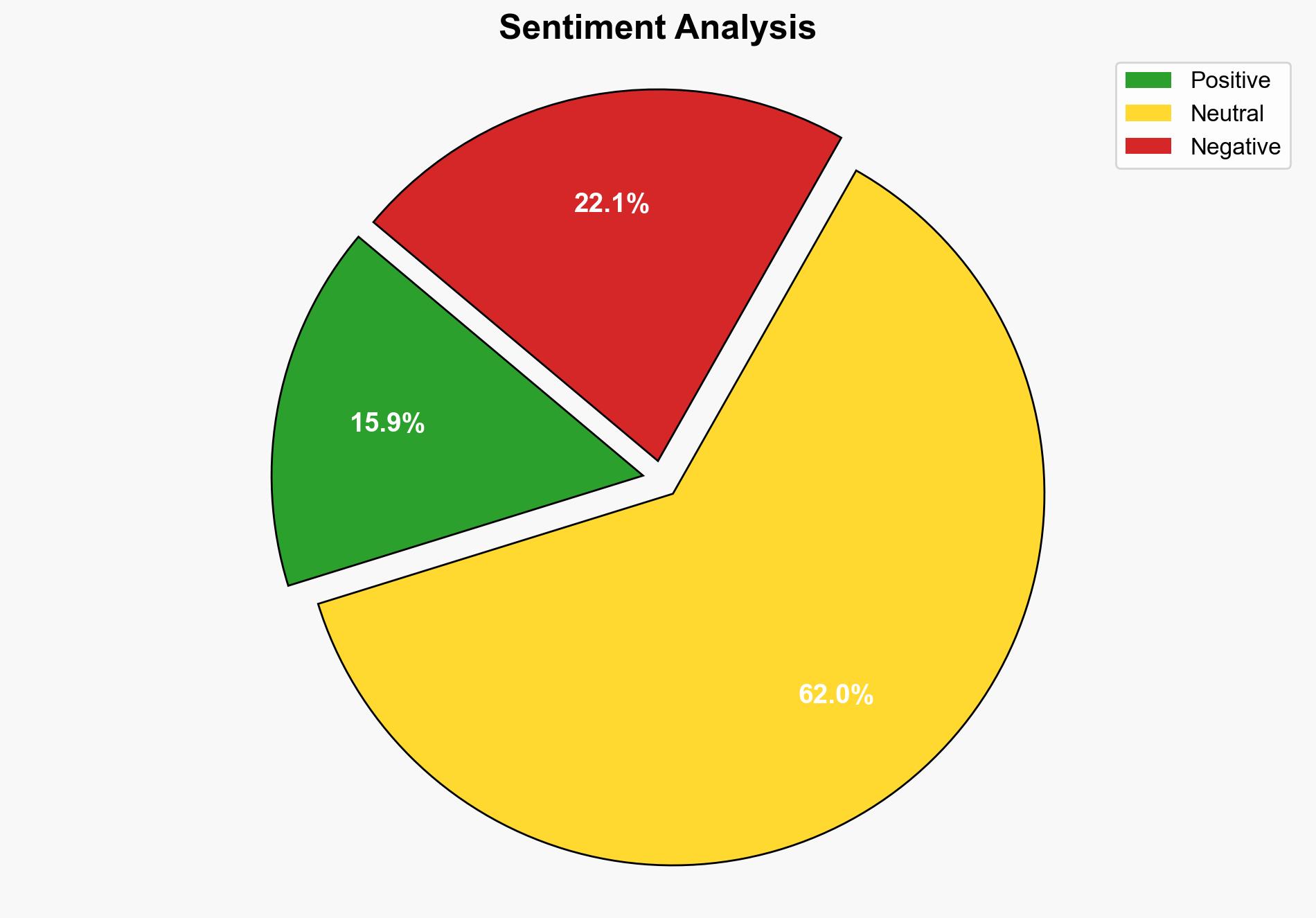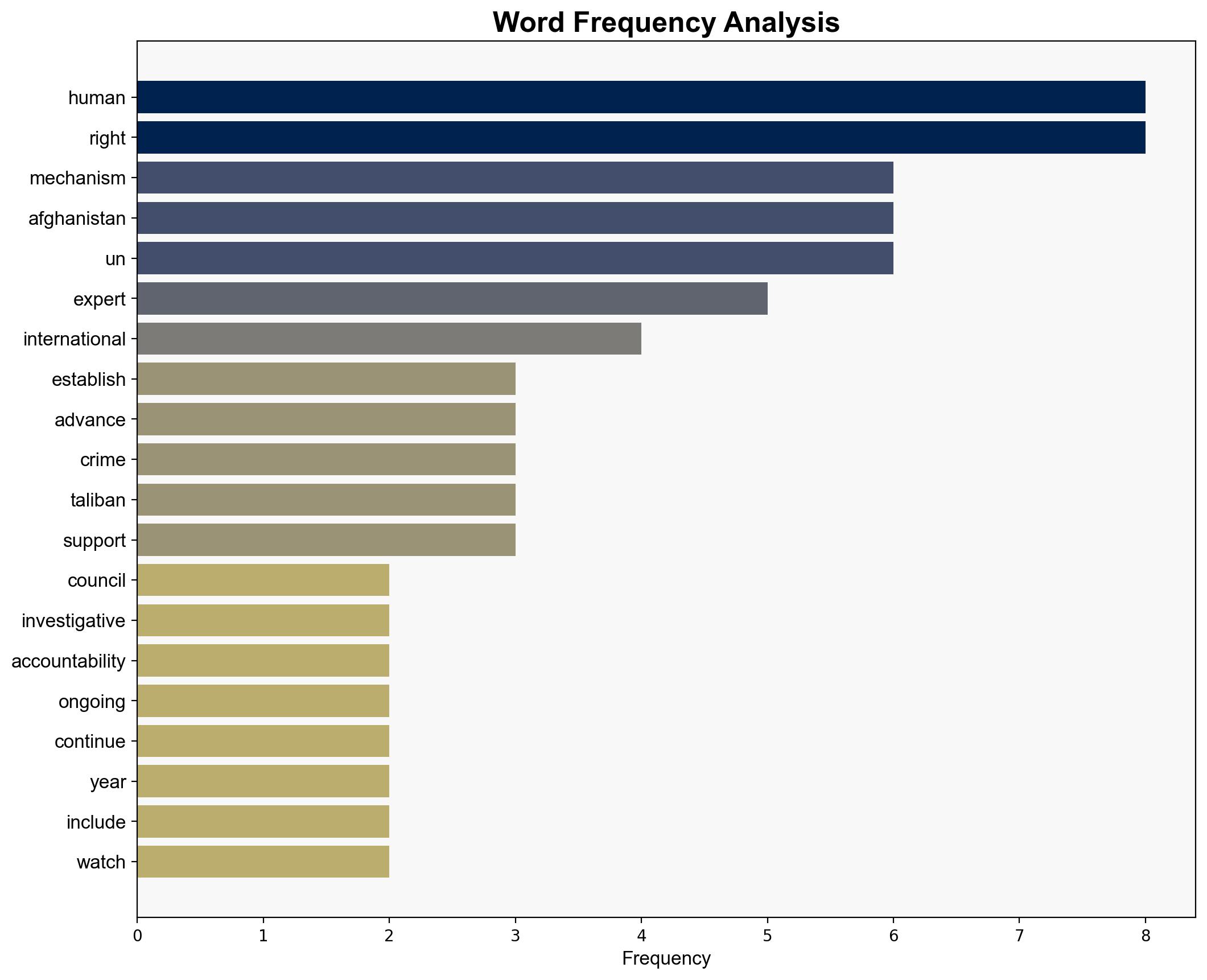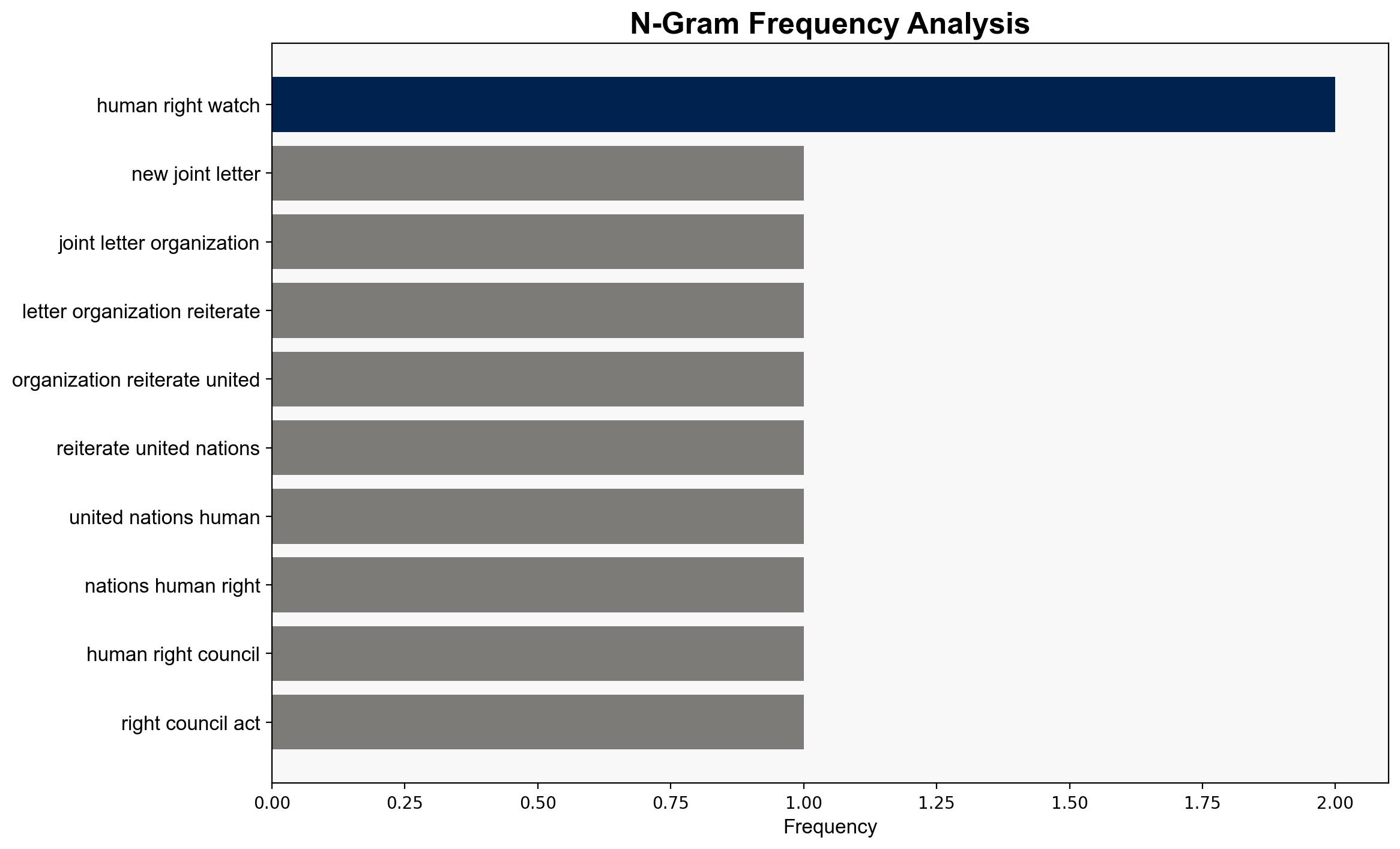UN Rights Council Should Support Justice in Afghanistan – Human Rights Watch
Published on: 2025-08-28
Intelligence Report: UN Rights Council Should Support Justice in Afghanistan – Human Rights Watch
1. BLUF (Bottom Line Up Front)
The most supported hypothesis is that the establishment of an independent investigative mechanism by the UN Human Rights Council could significantly advance accountability for human rights violations in Afghanistan, particularly under Taliban rule. The confidence level in this hypothesis is moderate, given the historical context of similar mechanisms in other regions. It is recommended that the UN Human Rights Council prioritize the creation of this mechanism to address ongoing human rights abuses and strengthen international legal frameworks.
2. Competing Hypotheses
Hypothesis 1: The establishment of an independent investigative mechanism will advance accountability and deter further human rights abuses in Afghanistan.
– **Supporting Evidence:** Historical precedents in Syria and Myanmar show that such mechanisms can effectively collect evidence and prepare case files for future prosecutions.
– **Structured Analytic Technique:** Cross-Impact Simulation suggests that increased international pressure and documentation could lead to greater accountability.
Hypothesis 2: The establishment of an independent investigative mechanism will have limited impact due to political resistance and logistical challenges.
– **Supporting Evidence:** Previous failures to hold the Taliban accountable and potential cost constraints could limit the effectiveness of the mechanism.
– **Structured Analytic Technique:** Bayesian Scenario Modeling indicates a high probability of political and logistical obstacles reducing the mechanism’s impact.
3. Key Assumptions and Red Flags
– **Assumptions:** It is assumed that the UN Human Rights Council has the political will and resources to establish and sustain such a mechanism. Additionally, it assumes that international cooperation will be forthcoming.
– **Red Flags:** Potential cognitive biases include overestimating the impact of international mechanisms based on past successes. The lack of detailed logistical planning and cost analysis is a significant blind spot.
4. Implications and Strategic Risks
– **Implications:** Successfully establishing the mechanism could lead to increased international scrutiny on the Taliban, potentially deterring further abuses. However, failure to implement it effectively could embolden the Taliban and undermine international credibility.
– **Strategic Risks:** There is a risk of geopolitical tensions if the mechanism is perceived as biased or ineffective. Additionally, there could be economic implications if resources are diverted from other critical areas.
5. Recommendations and Outlook
- Prioritize diplomatic efforts to build consensus among UN member states for the mechanism’s establishment.
- Conduct a detailed feasibility study to address logistical and cost concerns.
- Scenario Projections:
- Best Case: The mechanism is established, leading to successful prosecutions and deterrence of future abuses.
- Worst Case: The mechanism fails to launch or is ineffective, leading to increased human rights violations.
- Most Likely: Partial success with some accountability achieved, but limited by political and logistical challenges.
6. Key Individuals and Entities
– Human Rights Watch
– UN Human Rights Council
– European Union
7. Thematic Tags
human rights, international law, geopolitical strategy, accountability mechanisms




